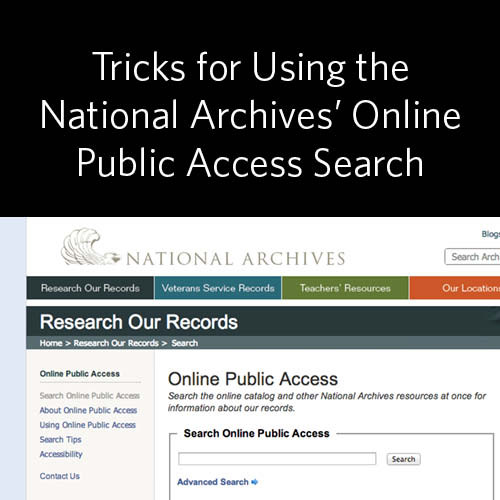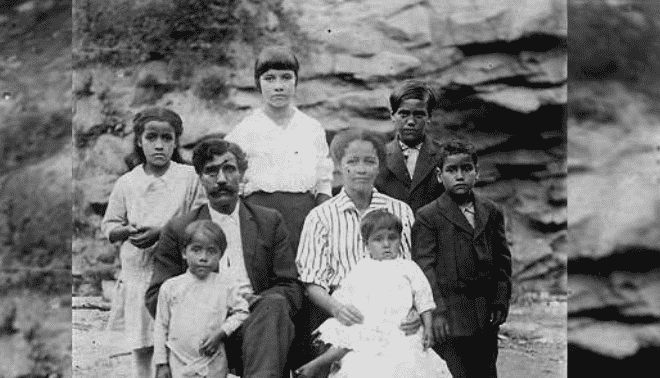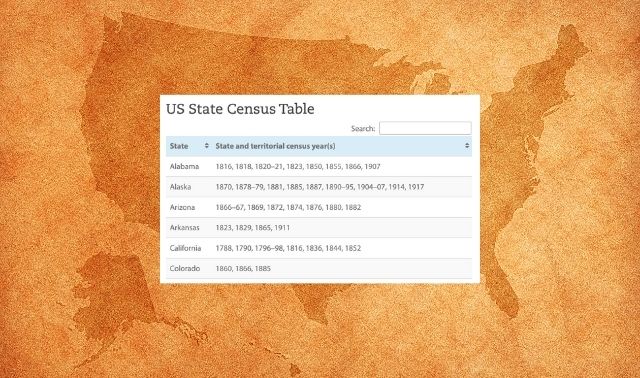Sign up for the Family Tree Newsletter Plus, you’ll receive our 10 Essential Genealogy Research Forms PDF as a special thank you!
Get Your Free Genealogy Forms
"*" indicates required fields
Imagine a building brimming with records and resources to help you with your family history research. A place dedicated to the collection of historical documents, journals, registers, maps and photographs from the state where your ancestors lived. Now imagine a comprehensive catalog of all those materials, helpful finding aids and a knowledgeable staff to assist your search. 3 Imagine a building brimming with records and resources to help you with your family history research. A place dedicated to the collection of historical documents, journals, registers, maps and photographs from the state where your ancestors lived. Now imagine a comprehensive catalog of all those materials, helpful finding aids and a knowledgeable staff to assist your search.
It exists
It may sound like genealogical nirvana, but it exists: Archives like these can be found in the capital city of every US state.
State archives collect and preserve public records and other materials of historical significance from each state. Many of those are records genealogists can use to reconstruct their family lines. They include records created at the state, county and local level, such as birth, death and marriage records; censuses; court records; institutional records; land grants; deeds; family papers; maps; surveys; military records; photos and more.
Each state is different
Just as each state has its own history and character, each state archive varies in its structure, collections and operations. Some are part of state historical societies. Some states combine the functions of an archive (which collects unpublished records) with a library (which collects published materials such as books, newspapers and city directories). Other states have separate archive and library facilities.
Worth searching
The genealogical payoff of researching at state archives can be huge. By their very definition, these archives collect valuable documents of the past, some of which are found nowhere else. They’re often in files or bound volumes that haven’t been microfilmed or digitized, and they could hold important pieces of your family puzzle. You might find your ancestor’s original marriage bond from 1797, or a deed that identifies where he lived before he migrated in 1830. Of course, state archives also maintain large collections of microfilmed records, making them a one-stop research destination.
To help you determine what family treasures an archive has to offer and how exactly you can dig them up, I’ve put together this series of seven tips for state archives research. Armed with these strategies, you’ll be ready to make exciting discoveries about your ancestors in records of the state where they lived.
Tip 1: Explore Online
An easy way to find the location of a state archives is to do a Google search on the name of the state followed by the words state archives. The National Archives also maintains a list of all 50 state archives with links, addresses and contact information.
Get to know the website
Once you’ve located the archives for a particular state, spend some time exploring its website. Most are quite informative, detailing policies and the types of items in their collections. For instance, under the Researchers tab at the Kentucky Department for Libraries and Archives website, you’ll find information about visiting, county formation dates and record-destroying courthouse disasters, as well as how to request records by mail.
Make use of online guides
Many archives have created helpful online guides with genealogists in mind. The Connecticut State Library offers a History & Genealogy Subject Guide with information on colonial records, genealogy indexes, newspaper research, military records and other topics. Look for links to the archives’ online catalogs, finding aids and digital collections, which we’ll discuss in more detail below.
Learning what the archives doesn’t hold is just as crucial as what it does hold. No state archives has enough room to store every record ever created in the state. Some archives don’t collect personal items such as diaries and letters, for example, while others do. Archives in larger states may have a network of affiliated repositories in multiple cities. Some states still keep local records in county courthouses or town halls.
Become knowledgable about the facility
Use the archives website to learn all you can about the facility, its policies, and its holdings before you leave home. The time you spend familiarizing yourself with it before your visit can save you hours and frustration later. You might discover you can request the records you need by mail or online, potentially saving the trip. Microfilmed or published records could be available at a library closer to you.
Ready for tip 2? Head over to the second article to learn to adjust your focus.
NARA’s new catalog, Online Public Access, makes it easier to find documents that could shed light on your ancestors lives. Learn tricks for tracking down the records you need in a single search. Become an expert today!
ADVERTISEMENT




